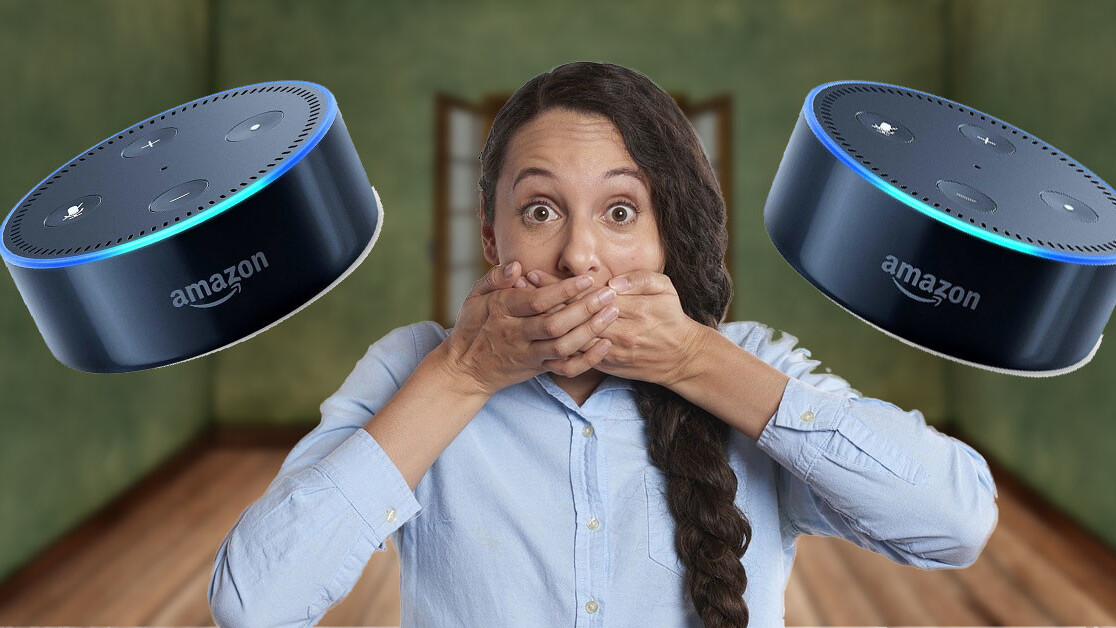
Amazon has big plans for its virtual assistant. One day, perhaps sooner than you think, Alexa will take a proactive role in directing our lives. It’ll interpret our data, make decisions for us, and summon us when it has something to say.
Rohit Prasad, the scientist in charge of Alexa’s development, recently gave MIT Technology Review’s Karen Hao one of the most terrifying interviews in modern journalism. We know how dangerous it is to let bad actors run amok with AI and our data – if you need a refresher, recall the Cambridge Analytica scandal.
That’s not to say Prasad is a bad actor or anything but a talented scientist. But he and the company he works for probably have access to more of our data than ten Facebooks and Twitters combined. And, to paraphrase Kanye West, no one person or company should have all that power.
Hao writes:
Speaking with MIT Technology Review, Rohit Prasad, Alexa’s head scientist, has now revealed further details about where Alexa is headed next. The crux of the plan is for the voice assistant to move from passive to proactive interactions. Rather than wait for and respond to requests, Alexa will anticipate what the user might want. The idea is to turn Alexa into an omnipresent companion that actively shapes and orchestrates your life. This will require Alexa to get to know you better than ever before.
The idea of Alexa being an omnipresent companion looking to orchestrate your life should probably alarm you. But, for now, the work Prasad and the Alexa team are doing isn’t scary on its own merit. If you’re one of the eight or nine people on the planet who has never interacted with Alexa, you’re both missing out and not really missing out. Virtual assistants, today, are equal parts miraculously intuitive and frustratingly limited.
With one interaction, you’ll say “Alexa, play some music” and the assistant will ‘randomly’ select a playlist that touches the depths of your soul, as if it knew better than you did what you needed to hear.
But the next time you use it, you might find yourself in a three-minute-long argument over whether you wanted to listen to music by Cher or purchase a beige chair (with free two-day shipping).
From a consumer point-of-view, it’s hard to imagine Alexa becoming so useful that we’d come running when it summons us. But Alexa’s primary mission will always be to gather data. Simply put: Amazon, Microsoft, and Google are all trillion dollar companies because data is the most valuable resource in the world, and Alexa is among the world’s greatest data collectors.
Once Alexa stops listening for commands and starts making suggestions, it means Amazon’s no longer focused on building a handful of giant training databases comprised of data from hundreds of millions of users. Instead, it indicates that it’s focused on building millions of training databases composed of data gleaned from single individuals or very small user groups.
Hao’s Tech Review article continues:
Prasad’s ultimate vision is to make Alexa available and useful for everyone. Even in developing countries, he imagines cheaper versions that people can access on their smartphones. “To me we are on a journey of shifting the cognitive load on routine tasks,” he says. “I want Alexa to be a productivity enhancer … to be truly ubiquitous so that it works for everyone.”
This transition probably won’t feel like a giant leap in technology. It doesn’t take an expert to assume that the pushy version of Alexa will still stumble, struggle, and fail to accomplish language tasks that a four-year-old would understand.
But it’s not about creating a science-fiction experience that wows you. It’s about finding ways to get even more personalized data for Amazon by, literally, giving Alexa permission to start the conversation.
Everything changes the moment our relationship with a collection of algorithms goes from “Hey Alexa” to “Yes Alexa?”
Read next: A beginner’s guide to the AI apocalypse: Misaligned objectives
Get the TNW newsletter
Get the most important tech news in your inbox each week.




